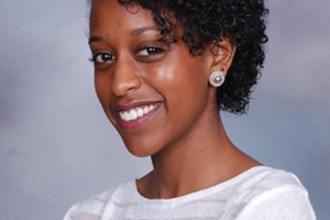Negotiating with absolutes
By Maria Amir
“Freedom is what you do with what’s been done to you.†– Jean-Paul Sartre

“Release” by Carne Griffiths
There are few words in any language that have as many intonations as ‘freedom’. This is perhaps the only word that is taken seriously in equal measure in both an individual and collective capacity, which predictably, also makes it the most problematic word in any given language. The dictionary definition of ‘freedom’ reads: “the power or right to act, speak, or think as one wants without hindrance of restraint / Absence of subjection to foreign domination or despotic governmentâ€. It does not take much effort to recognize that this concept is utopian and beyond the scope of most mortals. That said, what demands further inspection is whether it remains an ideal worth aspiring to.
Over the years our understanding of the word has altered perceptibly. We have mentally moved from the collective to the individual, from the idea of ‘free people’ to the idea of ‘personal freedoms’. Yet we remain trapped by the need to ensure freedoms for a collective. Historically ‘freedom’ has been qualified, classified and dispersed as seen fit by varied religions, monarchs, governments and / or tyrants. Though this continues to be the case, humanity has cultivated a document laying out the essential freedoms available to each individual that ought to be safeguarded by a State. The Universal Declaration of Human Rights[i] (UDHR) was adopted in 1948 and, ever since, has propelled an ideal that the 1968 International Conference on Human Rights in Tehran referred to as “a common understanding of the peoples of the world concerning the inalienable and inviolable rights of all members of the human family… and constitutes an obligation for the members of the international community.† Twenty years ago, over 150 countries reaffirmed their commitment to the UDHR at the World Conference on Human Rights in Vienna.
Gibson has been accused of racism […] As an American, the most he faces for these views is being ostracized from the film fraternity and a notable dip in his heartthrob status.
As an exercise in surreal Cartesian doubt
[ii], let us take actor-director Mel Gibson as a premise for testing some of the basic freedoms outlined by the UDHR. We all remember the 1995 historical drama epic
Braveheart, which explored how far certain people are willing to go for ‘freedom’. Gibson, who directed the film, employs the word ‘freedom’ throughout.
“It’s all for nothing if you don’t have freedomâ€; indeed Wallace’s last words – encapsulated in a figment of cinematic history – as his innards are being scraped out, is an immortalized cry: ‘F-R-E-E-D-O-Mâ€. Gibson obviously appreciates the utopian romanticism of the word. That said, Mel Gibson is also the man who has said
“There is no salvation for those outside the Church… I believe itâ€[iii] and for having denied the Holocaust
[iv] as
“mostly a lot of horseshitâ€, after having referred to Jews in general as “
oven dodgersâ€. Gibson has also been accused of racism, after his July 2010 phone call to Okrana Grigorieva where he said that if she was “
raped by a pack of niggersâ€, she would be to blame. As an American, the most he faces for these views is being ostracized from the film fraternity and a notable dip in his star / heartthrob status. Gibson’s freedom to express each one of these views is protected under the UDHR and, while he may be socially condemned for his opinions, he cannot be imprisoned for them. Theoretically speaking, this is a good thing and any liberal worth their salt will defend the right to freedom of thought, speech, expression and belief unequivocally. That is, until we are faced with a Mel Gibson or Hugo Chavez in person, someone who we can appreciate for their work but not for most of what comes out of their mouth.
Continue Reading
1 2 3 View All →





